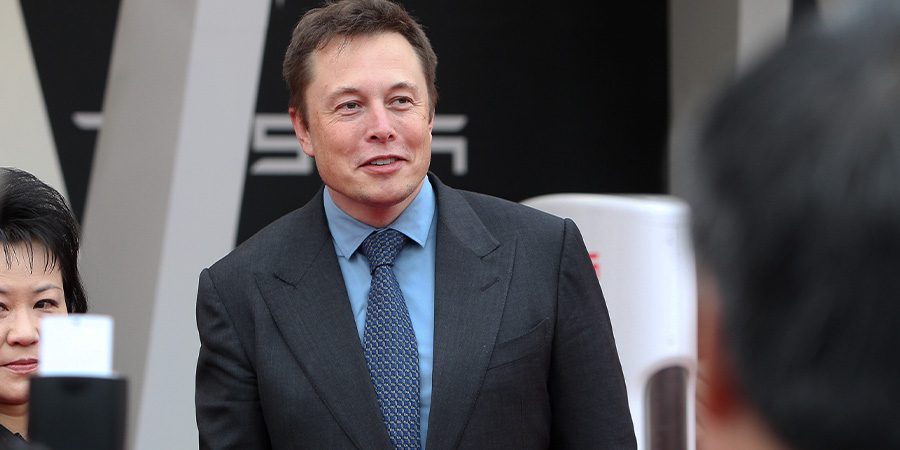In this article, we’ll look at the reasons behind Elon Musk’s recent admission about his management style and its effectiveness, as well as the ongoing debate about Tesla’s strategy.
Key Takeaways:
- Elon Musk engages in a Twitter debate about his management style and Tesla’s strategy
- The Tesla CEO admits to being “dumb way more often than I’d like to be”
- Discussions on Tesla’s price cuts and the demand for its products
- Musk’s past mistakes and his views on artificial intelligence
Twitter Debate on Musk’s Management Style
Elon Musk, the visionary entrepreneur behind Tesla and Twitter, recently found himself in the midst of a lively Twitter discussion about his management style.
A user with the handle @TSLAFanMtl disagreed with Musk on Tesla’s affordability and demand, sparking a debate among the Tesla CEO’s followers.
Whole Mars Catalog, a Twitter account frequently interacting with Musk, commented, “‘Elon knows best’ is a terrible argument. He’s great but can also be dumb.”
Musk’s response to the debate was refreshingly honest: “I am dumb way more often than I’d like to be!” This admission highlights Musk’s willingness to engage with criticism and acknowledge that he, too, can make mistakes.
The exchange comes at a time when Musk’s management style, particularly at Twitter, has been under scrutiny for controversial decisions, including cutting more than half the workforce and issuing ultimatums for employee commitment.
Tesla’s Price Cuts and Product Demand
The primary topic of the Twitter debate revolved around Tesla’s price cuts, which some critics believe could have been avoided if the company invested more in advertising.
As Tesla has lowered its prices several times this year to remain competitive, existing owners have expressed concerns about the value of their used vehicles.
Musk defended the price cuts by arguing that “demand at scale is limited by affordability” and that if the price exceeds what people can afford, the demand becomes irrelevant.
However, some users, like James Cat, disagreed with Musk’s stance, stating that affordability is only one factor in the decision-making process for potential Tesla buyers.
Cat argued that advertising could increase sales for Tesla, which has traditionally refrained from relying on advertisements.
Musk justified his choice by recalling his tweet from 2017 where he mentioned that Tesla does not promote or compensate for recommendations.
Rather, the funds are utilized to enhance the quality of the product.
Past Mistakes and Regrets
Musk’s admission of being “dumb” at times is not his first acknowledgment of making mistakes.
Last year, he expressed regret for not co-founding Tesla solely with CTO JB Straubel, which could have been interpreted as a jab at former CEO and co-founder Martin Eberhard.
Eberhard has been a critic of Musk’s autonomous driving initiatives and was once referred to as “Mr. Tesla.”
In a separate instance, Musk admitted that a short-lived Twitter policy resulting in the suspension of respected VC Paul Graham’s account “was a mistake.”
These moments of reflection demonstrate that Musk, despite his many successes, is not immune to making errors and is willing to admit them openly.
Elon’s Concerns Over Artificial Intelligence
Beyond his management style and Tesla’s strategies, Musk has been vocal about his concerns regarding artificial intelligence (AI).
In a recent Tesla investors day event, Musk expressed his apprehension about AI technology, which he has long warned could pose dangers to humanity.
Musk’s involvement with OpenAI, the company responsible for creating AI chatbots ChatGPT and GPT-4, has been a source of regret for the entrepreneur.
He donated approximately $100 million to OpenAI in 2015 when it was still a nonprofit, before the organization shifted its business model and accepted significant donations from Microsoft. Musk expressed his concern about artificial intelligence (AI) and the need for a regulatory authority to oversee its development.
He acknowledged the potential dangers of this technology and admitted that his actions may have contributed to its rapid advancement.
Musk’s concerns stem from the rapid advancements in AI technology and its potential to outpace human comprehension and control.
He believes that a regulatory body or oversight mechanism is necessary to ensure that AI develops safely and ethically.
This apprehension is not unfounded, as AI has the potential to impact various aspects of society, from job displacement to privacy concerns and even military applications.
In light of Musk’s unease about the implications of AI, his involvement with OpenAI could be viewed as an attempt to ensure that the development of AI technology is more closely monitored and guided by ethical considerations.
His past donations to the organization demonstrate his commitment to fostering responsible AI development, even if he now harbors some regrets about his role in its growth.
Conclusion
Elon Musk’s candid engagement in the recent Twitter debate, which covered topics such as his management style, Tesla’s pricing strategy, and AI concerns, showcased his willingness to learn, grow, and improve.
His admission of making mistakes highlights his humility and openness to feedback, characteristics that have undoubtedly contributed to his success.
As AI continues to advance, Musk’s concerns about its potential dangers and the need for oversight remind us of the importance of ethical considerations and responsible development in the rapidly evolving world of technology.
 Sections of this topic
Sections of this topic
















